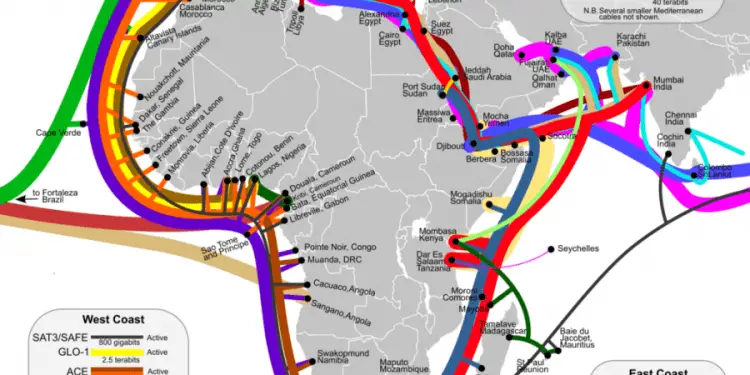- The funding will see SEACOM grow its broadband cable network and cloud-based product offering in sub-Saharan Africa.
- Under the new deal, IFC will provide a $207 million long-term loan to SEACOM.
- The funding will support SEACOM to become the next-generation cloud-based IT service business.
SEACOM has partnered with the International Finance Corporation (IFC) to increase the access to broadband IT services for small and medium-sized businesses across Africa. The partnership will see SEACOM, a digital infrastructure and IT services company, grow its broadband network and cloud-based offerings in sub-Saharan Africa.
IFC will offer SEACOM a $207 million loan, which includes $70 million from IFC’s own financing. A total of $42.24 million co-financing will come from institutional investors through IFC’s Managed Co-Lending Portfolio Program. Another $94.76 million will be mobilized from Nedbank Limited and Mauritius Commercial Bank.
SEACOM expanding cloud-based services
“Access to affordable, good-quality internet is central to economic and social development. The partnership with SEACOM will support the company in expanding much-needed digital infrastructure and cloud-based services to meaningfully connect more people and businesses on the continent,” IFC’s Regional Director for Infrastructure and Natural Resources in Africa Sarvesh Suri said.
The funding will support SEACOM’s strategy to become an integrated broadband and next-generation cloud-based IT service business.
SEACOM leverages cloud technology, broadband submarine cable network, and fiber in major African cities. The tech giant provides IT business tools in Djibouti, Kenya, Mozambique, Rwanda, South Africa, Tanzania and Uganda.
Read also: Uganda: SEACOM acquires Africell’s infrastructure assets to expand business in East Africa
The IT firm launched Africa’s first broadband submarine cable system along the continent’s Eastern and Southern coasts in 2009.
“Pursuing our expansion ambition in Africa will allow our company to leverage the opportunities created by the increasing demand for digital services; it is also a demonstration of a long-term partnership with the IFC,” SEACOM Group Chief Financial Officer Richard Schumacher said.
SEACOM targeting 24,000 enterprises
IFC anticipates that the investment will increase access to quality IT services for African businesses. It will enable SEACOM to support the digital transformation of 24,000 enterprises in the region by 2027. The undertaking will even include enterprises in low-income countries, providing them access to internet, and cloud and cybersecurity services. IFC’s partnership with SEACOM is another step toward helping to close the digital connectivity gap in Africa.
IFC’s digital strategy in Africa aims at enabling ubiquitous, reliable, and affordable connectivity. This includes investing in the growth of independent tower operators, data centers and broadband. It also supports mobile operators primarily in fragile states and low-Income International Development Association countries.
Over the last decade, IFC committed and mobilized over $7 billion in digital infrastructure and services globally. In addition to providing financing, IFC helps firms improve corporate governance and align environmental and social practices with IFC’s performance standards.
Africa’s digital infrastructure deficit
According to the Development Bank of Southern Africa, digital infrastructure deficit is one of Africa’s biggest deterrents to growth. Inadequate digital infrastructure is also hindering Africa’s global participation competitively.
The lender said Africa needs to prioritise digital infrastructure advancements with urgency. “As a development finance institute, we’re committed to doing our part to ensure that we meet our mandate and build prosperity for Africa and those who live in it,” the bank notes in a policy paper.
Additionally data by the lender indicates that Africa’s infrastructure investment needs reached $130–$170 billion a year by 2018, with a financing gap of $68–$108 billion.
Meanwhile, Africa requires an estimated $135 billion annually to finance infrastructure. The continent also needs fit-for-purpose skills to ensure that there is a workforce capable of using the advanced physical infrastructure.
It further adds that there is a need to train “an interdisciplinary workforce, unleashing their imagination and expertise to solve future problems, anticipating which innovations and technologies will be in the ascendant.”
